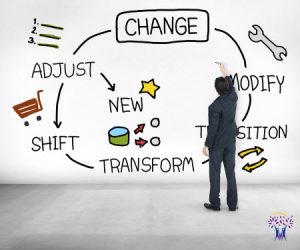Life’s Transitions

Transition is defined as a passage or movement from one state, condition, or place to another, and is considered both a process and an outcome of complex person environment interactions. Transitions are a natural part of our lives, whether planned or unexpected. When multiple transitions occur simultaneously they become more complex to manage, sometimes leading to increased illness.
Change
Change implies something is left behind; there is a perceived loss, which conjures a sense of fear. We choose what to take with us, let go, how to move forward, adapt, and grow.
If we are not ready for change, transitions can be very painful. Remember, keeping feelings about transitions locked inside can result in making the body physically sick, clinically depressed, or overwhelmed to the point of complete exhaustion.
Anxiety
We should expect some anxiety with transition. Anxiety is a feeling of fear, uneasiness, and worry. According to Webster’s dictionary, anxiety is the fear or nervousness of what might happen. It is often accompanied by muscular tension, restlessness, fatigue and problems in concentration. When we understand life’s transitions it allows us to make good decisions that will be beneficial in the long run.
Resources
Moving, a new job, or a break-up can be a good or bad experience; it can also be an expected or unexpected transition. Resources can be very helpful when we experience any transition. Are you resourceful? Resourcefulness depends on cognitive skills used to accurately perceive the situation, efficacy to cope with the situation, and readiness to deal with change. There are many resources that can help us go through life’s transitions. A friend, preacher, family member, or counselors are valuable resources that can help us get through transition experiences.
Benefits of Transitions
During an interview, several people were asked how life’s transitions hindered or helped them. Responses included:
- “Moving out of and away from the situation I was in has allowed me the freedom to reconnect with my family and friends…I feel a greater freedom to be who I am and do things I need to do.”
- “Having my home repossessed was an exercise in letting go and acceptance for me.”
- “Moving from my parent’s home forced me to mature into adulthood. I never held a job more than three months and now I have had the same job for over two years.”
These statements are examples of how transitions can be beneficial to our mental health and well being. They were able to adapt and overcome throughout life’s changes.
Sometimes it takes a transition to force us to set goals and evaluate our priorities. While we need to acknowledge our loss, we don’t want to get stuck in the past and create other problems.
Remember, we have made many transitions over the course of our lifetime…changing schools, getting married, moving, a new job or having children. We have made it through all of these challenging experiences. We have learned from them and grown into the person we are today…the person who can get through life’s transitions and move into the next chapter of life better from experience.
